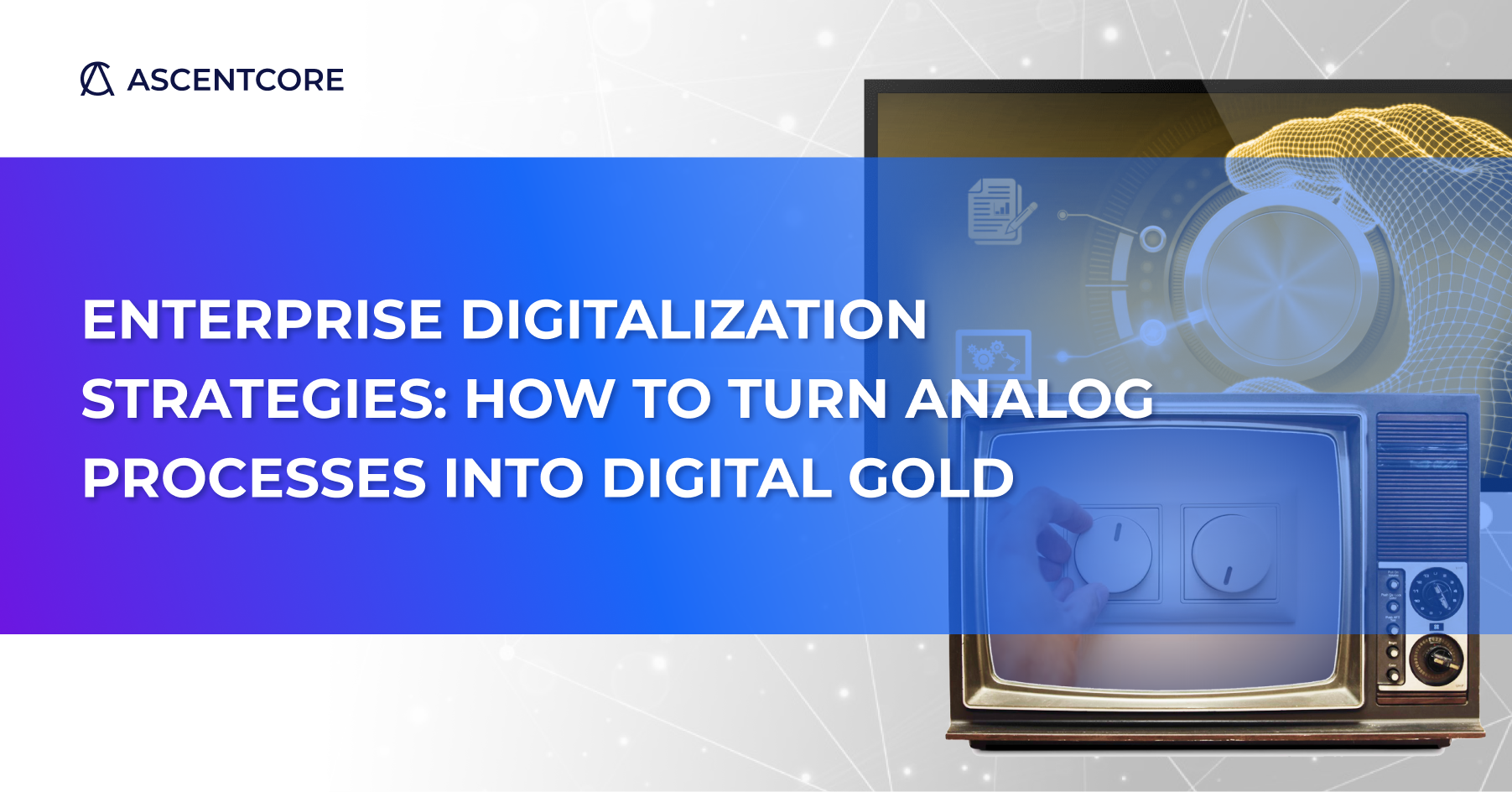If you’re a regular reader of our blog, you know we’ve been diving into the pillars of digital transformation and what they mean for enterprises across industries. Digital transformation has become a fundamental shift in how enterprises operate and deliver value to their customers. So, let’s focus on the next pillar with enterprise digitalization strategies. Keep reading as we explore this concept and unpack how your business can employ this strategy to move forward and stay competitive.
Why Digitalize?
In the ever-evolving business landscape, one of the most significant catalysts for progress lies in the digitalization of operations. Embracing this transformative shift doesn’t just entail integrating technology; it requires a holistic reimagining of processes, paving the way for enhanced efficiency, minimized errors, and optimized data management.
Let’s explore how this shift through enterprise digitalization strategies can revolutionize businesses.
Streamline Operations for Enhanced Efficiency
Businesses can significantly amplify their efficiency by replacing manual processes with automated workflows. Tasks that once required extensive time investments and were prone to human error now become seamless. Let’s say you have a team that spends half its time focused on data entry and report generation. This can be time-consuming and tedious, leaving more strategic and productive work to fall by the wayside. But if you digitalized this workflow through robotic process automation, not only would these tasks be completed in record time, but your team would have more time to focus on innovating and creating.
Minimize Errors Through Automation and Precision
The transition to digital operations isn’t merely about expediting tasks—it’s about minimizing errors and enhancing precision. Let’s go back to our earlier example about a team spending time on data entry and reporting. Human error is an inherent part of this process and can cost your business time and money. However, digitizing these systems and processes can get these tasks done consistently and accurately, reducing the margin for error.
Empower Data Management for Strategic Insights
The digital era has birthed an era of data abundance, and businesses are inundated with information – both helpful and unhelpful. The key to leveraging data is collecting and analyzing it into actionable insights. Digitalization centralizes data storage and empowers sophisticated analytics tools to derive meaningful patterns and trends. Utilizing centralized data repositories and cloud-based solutions can facilitate seamless data accessibility and collaboration. At the same time, advanced analytics can unlock a goldmine of insights, enabling businesses to make data-driven decisions.
The Analog-to-Digital Evolution
Analog processes have long been the bedrock of various industries. From handwritten notes to paper-based documentation, these methods have served us faithfully. However, the digital age presents an opportunity to reimagine these processes, remove limitations, and propel businesses forward. Think about a paper-based filing system. While it has long served its purpose, it lacked the speed, accessibility, and flexibility that digital systems can offer – which enterprises need in today’s landscape.
So, how can businesses make the switch and digitalize their outdated processes? Let’s explore the enterprise digitalization strategies that make it possible.
Assessment and Planning
The first step in transforming analog processes is to understand what current systems are in use and for what purpose. Identifying pain points, inefficiencies, and areas for improvement can be the backbone of a comprehensive plan that outlines goals, necessary budget and resources, and timelines for moving to digital processes.
Choose the Right Tools
Selecting the appropriate digital tools is crucial. Digital transformation looks different for every business, so it’s essential to understand what’s really needed. Whether it’s adopting cloud-based software, implementing automation platforms, or creating custom applications, the choice of tools should align with the specific needs of the process being digitized.
Data Migration and Integration
Once the right digital tools have been identified and implemented, the fun really begins: migrating and integrating the data needed for the digital process. This requires an intentional and thoughtful plan for smooth data migration to ensure seamless integration between existing analog data and new digital systems.
User Training and Adoption
“If you build it, they will come” is not a good digitalization strategy approach, so introducing digital products will require training and managing user needs. As part of the process, build in time and resources to educate users on the functionalities of new systems, how they replace analog processes, and emphasize the benefits.
The Future Is Digital
The digitalization of operations isn’t an option—it’s a necessity for businesses aiming to thrive in a fast-paced, competitive environment. Embracing this paradigm shift isn’t without its challenges, including initial investment costs, cultural changes, and data security concerns. However, the benefits – such as improved operational efficiency, reduced errors, and enhanced data management capabilities – far outweigh the challenges. As the digital landscape continues to evolve, those who seize the opportunities presented by digital transformation will not just survive but thrive in an era defined by technological advancement.













